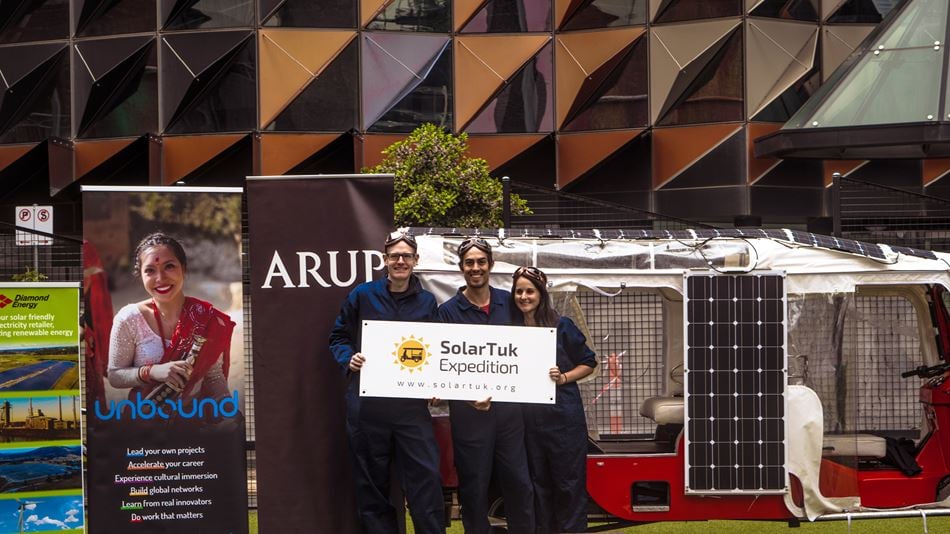 Trish Sunga
Australasia Press Office,Sydney
Trish Sunga
Australasia Press Office,Sydney
A humble, solar powered electric tuk tuk has left Melbourne for a 3,000+ km journey up the east coast of Australia.
Developed by a team from social impact education provider Unbound, RMIT and Arup, ‘SolarTuk’ will travel through the major cities of Melbourne, Canberra, Sydney and Brisbane as well as regional centres including Jindabyne, Port Macquarie and Bundaberg before finishing at the Great Barrier Reef.


